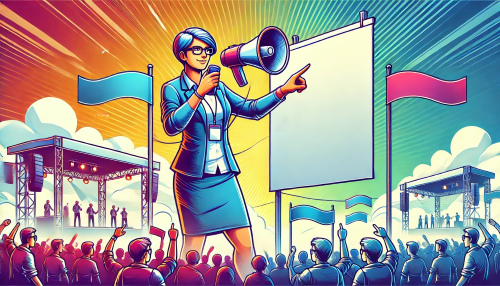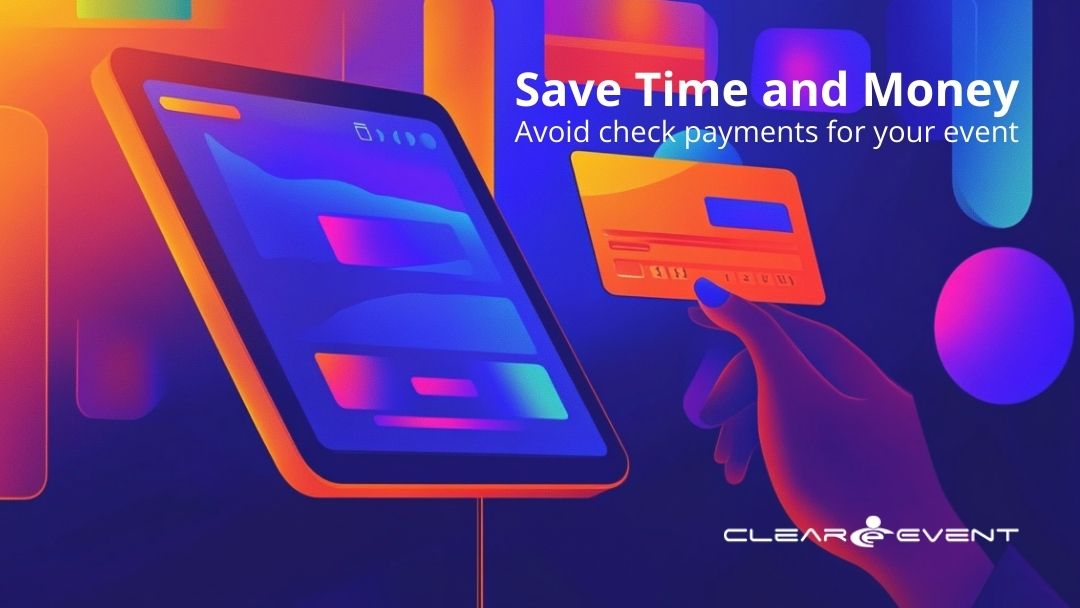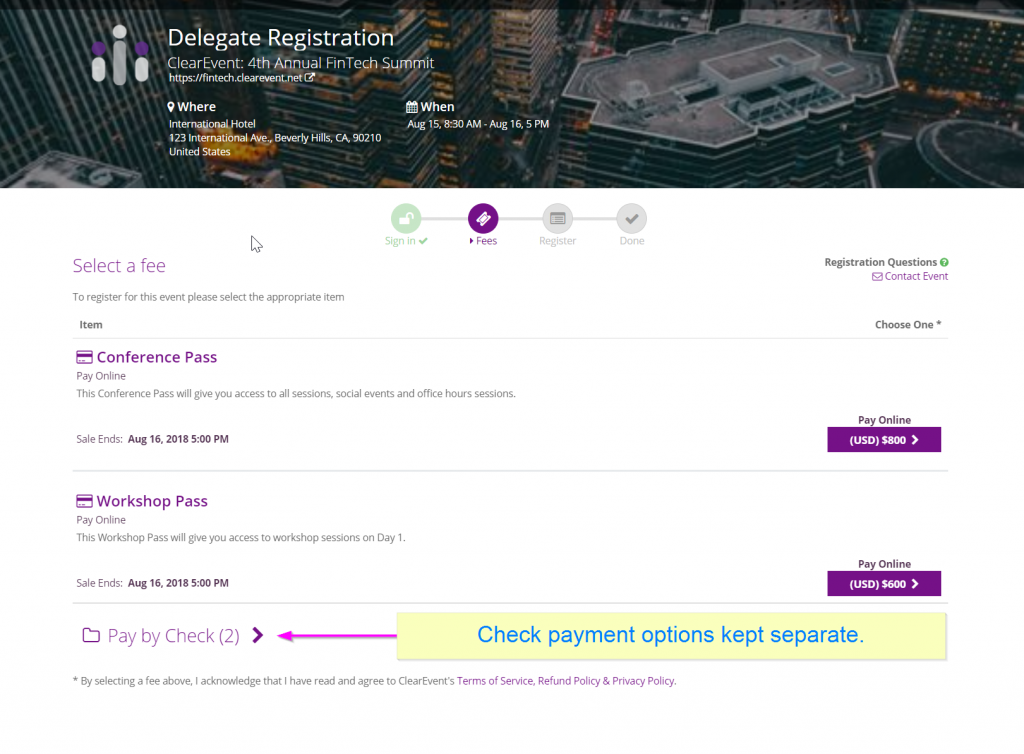
by ClearEvent Support | Event Management
Planning an event is only half the battle; the real challenge lies in effectively promoting it to ensure a successful turnout. Whether you’re an experienced event manager or a volunteer organizer, these strategies can help you boost attendance, media coverage, and exhibitor presence. Let’s dive into the various methods you can use to spread the word about your event.
Email Campaigns: Reaching Your Audience Directly
Email marketing remains one of the most powerful tools for event promotion. If you have a mailing list or newsletter, leverage it to communicate with potential attendees. Here’s how to make the most out of your email campaigns:
Crafting Effective Emails
Create a series of emails that build anticipation and provide essential information. A three-part email campaign could look like this:
- Announcement Email: Introduce the event, highlight key attractions, and include a call-to-action (CTA) to register or purchase tickets.
- Reminder Email: Send a follow-up a couple of weeks later, emphasizing the benefits of attending and including testimonials or highlights from past events.
- Last-Chance Email: A final reminder a few days before the event, creating a sense of urgency and offering any last-minute deals or incentives.
Simplify this task by taking advantage of tools which allow you to schedule sending emails ahead of time.
Email Signature Promotion
Encourage your team to update their email signatures to promote the event. A simple message like “Don’t miss out on the event of the year – tickets on sale now!” with a link to the registration page can significantly increase awareness.
Optimizing Your Event Website
Your event website is a critical hub for information and registration. Here’s how to optimize it for maximum impact:
Clear Call-to-Actions (CTAs)
Ensure your website has prominent and clear CTAs. Each page should guide visitors towards registering or buying tickets with minimal effort. For example, a “Register Now” button should be highly visible and easy to find.
Dedicated Event Pages
Create a dedicated page for your event with all the details potential attendees need. Include information on speakers, schedules, venue, and FAQs. Use engaging visuals and testimonials to build excitement.
Harnessing the Power of Social Media
Social media platforms are invaluable for reaching a wider audience. Here’s how to effectively use them:
Regular Posts and Updates
Post about your event regularly on platforms like Facebook, Twitter, LinkedIn, and Instagram. Use engaging images, videos, and hashtags to increase visibility. Consistency is key – make sure to post updates, behind-the-scenes content, and reminders leading up to the event.
Facebook Call-to-Action Button
If your event has a Facebook page, utilize the Call-to-Action button feature. Setting up a “Sign Up” button can direct visitors straight to your registration page, significantly boosting sign-ups. Learn how to set this up now.
Social Media Advertising
Invest in targeted social media ad campaigns. Platforms like Facebook and LinkedIn allow you to reach specific demographics and interests. Use these tools to promote your event to users who are most likely to be interested.
Encouraging Social Referrals
Word-of-mouth remains a powerful promotional tool. Encourage attendees to share the event with their networks:
Incentivizing Referrals
Offer incentives for referrals, such as discounts, exclusive access, or prizes. This not only increases your event’s reach but also adds a layer of engagement for your attendees.
Official Event Hashtags
Create and promote an official event hashtag. Encourage attendees to use it when posting about the event. This helps build a community and makes it easier for people to find content related to your event.
Learn more about using hashtags effectively by reading the Digital Marketing Institute article here.
Leveraging Video Content
Video on social media platforms are shared 12 times more frequently than text and images combined. Using video can significantly boost your event promotion efforts:
Highlight Reels and Testimonials
Create a highlight reel from past events or a promotional video showcasing what attendees can expect. Use testimonials from previous participants to build credibility and excitement.
Sharing Across Platforms
Share your videos on YouTube, Facebook, Instagram, and Twitter. Embed them in your emails and on your event website. Videos can capture attention quickly and convey a lot of information in a short time.
Building Partnerships and Affiliations
Collaborating with partners can extend your event’s reach:
Industry Partners and Sponsors
Reach out to industry partners, sponsors, and affiliates. Ask them to promote your event through their channels. They have a vested interest in your event’s success and can help you reach a broader audience.
Media Coverage
Seek media coverage by sending press releases to relevant media outlets. Highlight unique aspects of your event that would appeal to their audience. Media coverage can significantly boost your event’s visibility.
Utilizing ClearEvent’s Features
ClearEvent offers several features that can simplify your event promotion efforts:
Registration Form Sharing
ClearEvent makes it easy to share registration forms through various channels. Utilize private registration forms for targeted invitations and public forms for general promotion.
Social Media Integration
ClearEvent’s platform allows you to add a share button on your Event Portal header. This encourages attendees to share their participation with their networks, expanding your event’s reach.
Event Hashtags
Create and display an event hashtag prominently. This encourages attendees to use it in their posts, helping to build a community and increase your event’s visibility.
For more detailed insights into leveraging ClearEvent’s features, visit ClearEvent’s features page.
FAQs: Common Questions About Event Promotion
How far in advance should I start promoting my event?
It’s best to start promoting your event at least three to six months in advance. This gives you enough time to build awareness and excitement.
What social media platform is best for event promotion?
It depends on your target audience. Facebook and LinkedIn are great for professional events, while Instagram and Twitter are excellent for more casual or visually driven events.
How can I measure the success of my event promotion?
Track metrics such as website traffic, email open rates, social media engagement, and registration numbers. Use these insights to refine your strategies for future events.
Final Thoughts
Promoting an event requires a multi-faceted approach to ensure maximum reach and engagement. By utilizing email campaigns, optimizing your event website, leveraging social media, encouraging referrals, creating engaging video content, building partnerships, and utilizing ClearEvent’s features, you can significantly boost attendance and make your event a resounding success.
Remember, effective promotion is all about consistency and creativity. Start early, use a variety of channels, and always look for new ways to engage your audience. Happy planning, and may your next event be the best one yet!
Interested in boosting your event’s success? Contact us today!
Ready to streamline your event promotion? Book a demo with ClearEvent now!

by ClearEvent Support | Event Management
Emergency preparedness is like flossing—it’s something all event planners know they need to do, but it often ends up being an afterthought. Unfortunately, overlooking this crucial step can have serious consequences if something goes wrong. The last thing you want is for your event to be remembered as a disaster.
This guide will provide practical tips and considerations for event planners to prepare for emergencies effectively. While you can’t plan for every scenario, having a response plan for common situations ensures a safer event for attendees and peace of mind for organizers.
Why Emergency Preparedness Matters
Emergencies don’t always involve catastrophic incidents like loss of life. As Dave Leonard, CEO of Mosaic Medical, highlights, preparedness can include planning for scenarios like lost children, overcrowding, or simply deterring potential issues with visible security measures.
Emergency planning doesn’t need to feel overwhelming—it just needs to be intentional. By breaking down potential risks, creating a plan, and involving the right people, you can mitigate potential chaos and create a safe, memorable event.
What Is Your Goal?
Questions to Define Your Goals
The first step in emergency preparedness is identifying your goals during an emergency. Consider the following questions:
- Is discretion a top priority?
- Should the event continue in the face of disruption?
- How will overcrowding or unexpected incidents be managed?
- How do you want your event to be perceived in the community? Is it a positive contributor or a drain on local resources?
- Do you have a plan for communicating with attendees and the media if something goes wrong?
Managing Public Perception
Having clear objectives will shape your emergency response plan and communication strategy. For instance, social media can quickly amplify bad news. Preparing clear, concise messages that show the situation is under control is vital to managing public perception.
“The most important first step in emergency preparedness is to determine what your goals are in the event of an emergency.”
When to Start Emergency Preparedness Planning
Early Planning Is Crucial
The best time to start planning for emergencies is at the very beginning of your event preparation. Early discussions with emergency professionals can influence critical decisions, such as:
- Event layout: Designing entrances and exits for efficient crowd control and quick evacuation.
- On-site medical staff: Reducing response times for medical emergencies.
- Security presence: Deter potential issues before they arise.
Avoid Last-Minute Panic
Many planners wait until the final week to consult emergency services, which is often too late to implement key changes. Therefore, starting early ensures you can address these concerns effectively and avoid last-minute panic.
“The very beginning of planning an event is the best time to initiate discussion with emergency professionals.”
Engage Experts to Develop a Response Plan
Benefits of Professional Expertise
Emergency preparedness professionals can help you identify risks and create response plans tailored to your event. They group potential emergencies by severity and develop clear, actionable strategies for handling each scenario.
Focus on What You Do Best
Even seasoned event planners can benefit from expert advice. After all, letting professionals handle the heavy lifting allows you to focus on the other 99% of event details.
“Enlisting an outside service can help identify your goals and prepare for common scenarios.”
Training and Communication: Empower Your Team
Equip Your Team for Success
Your team is your first line of defense in an emergency. Equip them with the knowledge they need to act quickly and effectively:
- Host Pre-Event Training: Teach staff and volunteers how to assess risks, who to inform, and how to communicate clearly in a crisis.
- Assign Clear Roles: Define responsibilities for specific scenarios to avoid confusion during an emergency.
- Use Technology Tools: Platforms like ClearEvent’s messaging feature ensure all team members stay informed and aligned.
Why Training Matters
Well-trained staff will feel empowered to respond confidently, which reduces the likelihood of chaos and ensures attendee safety.
Practical Emergency Preparedness Tips
Actionable Steps to Enhance Safety
Here are actionable tips to improve your event’s emergency preparedness:
- Create an Emergency Kit: Include essentials like first aid supplies, flashlights, batteries, and portable phone chargers.
- Develop an Evacuation Plan: Map out exits, identify safe zones, and rehearse evacuation procedures with your team.
- Set Up Communication Channels: Use SMS alerts or PA systems to quickly inform attendees and staff.
- Collaborate with Local Authorities: Build relationships with police, fire, and medical services to streamline coordination during emergencies.
- Plan for Common Scenarios: Include strategies for medical emergencies, lost children, severe weather, and security threats.
Additional Resources for Emergency Preparedness
Helpful Links
To learn more, explore these helpful resources:
Final Thoughts
Emergency preparedness doesn’t have to be overwhelming. By starting early, setting clear goals, and leveraging expert advice, you can create a safer, more enjoyable event for everyone involved. Preparedness isn’t just a responsibility—it’s the key to protecting your attendees and your event’s reputation.

by ClearEvent Support | Event Management
When planning online registration and ticket sales, you may be tempted to include an option for payment by check. Payment by check is a bad idea for several reasons. A key drawback of check payments is the delay and additional manual work they create, but there are other downsides too. If you can’t eliminate check payments, the next best option is to avoid check payments in your event as much as possible.
It’s important to get proceeds from registrations fast. Here’s three easy methods to help protect your time and revenue from the drawbacks of check payments by avoiding check payments.
Minimize the number of checks you deal with
One of the simplest ways to save yourself a lot of wasteful busy-work dealing with checks is to charge more for check payments.
Charging more for for payment by check both discourages customers from paying by check and encourages them to take advantage of paying by credit card.
Charging 20-25% more is a reasonable starting point. (There may be other factors in your event that lead you to set your “check payment” price higher or lower.) For example, suppose you have an exhibitor fee of $100 to be paid online by credit card. The same exhibitor fee when paying by check can be set to $120 or $125.
Charging more for check payments provides you a little compensation for the additional work you’ll be doing to manually process checks. For a $100 registration fee you’ll collect $20-$25 to cover your time and risk for manually handling check payments. As you can see, this barely covers the cost of your time! This is a good reason to avoid check payments altogether.
2) Help your check customers in pay by credit card
Some of your customers prefer to pay by check because they don’t have a credit card. Many event systems, such as ClearEvent, accept pre-paid credit cards which is a great option if the buyer does not have a bank-issued credit card.
Publish suggestions on your website and on your registration form where your customers can purchase pre-paid credit cards to help avoid check payments.
This approach also helps to minimize the number of bad checks you’ll have to clean up. Resolving bad checks is often a drain on time and resources as well as damaging your relationship with your bank.
3) Make check payment options less prominent
It’s best if most registrations use credit card payments, so structure your registration fees by putting credit card payment methods in the top positions. ClearEvent provides a lot of flexibility in setting up your registration forms. Fees can be grouped and ordered so you can organize your registration options as needed.

Keep check payment options separate and less prominent.
On your fees page, put your registration fees with credit card payment at the top and list your check options lower in your list of fees.
Alternatively, you could create a group of fees labelled “Pay by Check” and include only check payments in this section. This minimizes confusion between credit card payments and check payments and makes it more likely your registrants will register using online credit card payment.
Smart Planners Avoid Check Payments
If your event accepts check payments, take steps to minimize the number of check payments as much as possible. This minimizes wasted time and effort processing manual payments. It also ensures the majority of your revenue is available within days rather than weeks.
Charging more when accepting check payments provides an incentive to pay by credit card instead. Providing helpful suggestions and recommendations to your registrants about using pre-paid credit cards can further lower the work and risk of dealing with checks. Lastly, make the check options less prominent on your form to encourage more attendees to register using credit card.
These steps go a long way toward minimizing the impact of check payments, freeing you to focus on the bigger more important aspects of your event.
Happy Planning!
ClearEvent provides a great deal of flexibility to manage payments for your event, even check payments. Learn more here.
Interested In Other Topics?
As a conference planner, knowledge is key. Let us know the topics you’d like to hear about to help increase your event planning success, at support@clearevent.com.
In the meantime, Happy Planning!

by ClearEvent Support | Event Management
We had the opportunity to sit down with Jeannie Maidens, Coordinator at the Municipality of Port Hope this week to learn about how she plans her community events. Jeannie runs monthly events throughout the year and has modernized her event planning process using the ClearEvent platform. Join us in understanding what some of her challenges were and how she is handling event planning today.
Tell us a bit about yourself and the events that you plan.
As the Events Coordinator for the Municipality of Port Hope there are three areas of focus within my portfolio. The first area is planning for the Municipality of Port Hope corporate events like our Volunteer Firefighter Appreciation Banquet and the Civic Awards Ceremony. The second planning area is for municipal community events like our Canada Day Celebration or Port Hope Arts Festival. And lastly, I also facilitate 3rd party events on municipal property like Cultivate, a Festival of Food & Drink. For 2 years we’ve been using ClearEvent software for planning some of these events and we plan to expand its use to more events as we go forward.
What were you using before you started using the ClearEvent platform?
Prior to ClearEvent we were using a collection of tools – email, excel spreadsheets, word, and scribbled notes predominantly. We were introduced to the ClearEvent solution through the Festivals & Events Ontario Conference in 2015. I definitely saw the value for its use within our program. The software looked as if it would help us stay more organized.
What has ClearEvent allowed you to do that you couldn’t do with your previous event planning methods?
The biggest improvement for me was the ability to process online registration and payments. Handling this online has allowed me to connect with new participants and engage them in a way that I wasn’t able to before. ClearEvent’s registration software really up’d our game. The process that we were using before was a big barrier. We used to send folks a pdf and ask them to fill it out then mail it back. Very time consuming and challenging to keep track.
Have your customers been able to adapt to the technology easily?
Before we had the online payment and registration option through ClearEvent, we had two camps of customers. One group wanted the registration/payment online option and wondered why we didn’t already have it. At the same time, some vendors were used to the way things were and less comfortable with technology, especially around our Farmers’ Market event. As part of our customer service approach, we have set up things to help them navigate it. We also accept offline payments via check in addition to online for those who were less comfortable with the technology. The ClearEvent system allows for both. And the ClearEvent team has been very helpful providing materials that I can provide my customers to help them along. Overall though, switching to the ClearEvent platform has broadened our reach and we’ve gained more registrants as a result.
What has been ClearEvent’s key benefit to you?
Other than being able to process online registrations and payments, it does offer a new level of organization. It houses everything together and offers a new communication platform through the included Event Portal. I know the information is in the platform and others can access it through a self-serve mode removing me from the pressure of being a single point of communication. I also like that we are evolving and modernizing our events. The support from the ClearEvent team has been so helpful and a big benefit of going with ClearEvent. With our Canada Day Event on the horizon, the countdown clock on the Dashboard is another favorite part of the software.
Time-saving element.
Like any new system, you have to invest some upfront time to get started. You become more efficient as you get used to the system. And unique features like Rollover also are a huge time-saver if you have repeating events because it reduces much of the initial event set up. And the ClearEvent support team did a lot to help me get up to speed- great support.
What advice would you give someone else considering an Event Management Software System?
Think big about how you organize your event plans. Pay attention to all the features that ClearEvent offers and it can be the Mothership for your events. Have a good idea of what the main event planning problem is that you would like to solve. Focus on that to begin with and sort that out on the system first knowing that there’s lots of other ways to use the system that you’ll get to. You don’t have to utilize all the included tools right away. There are lots of features that can be adopted as you go because there is a lot in the platform.

Port Hope Canada Day Parade, 2017

Port Hope Arts Festival, 2017

by ClearEvent Support | Event Management
Event planners are busy and it’s no easy feat to pull off a great event. Think for a moment, which of your suppliers go the extra mile to make sure everything is optimal for you? And even more importantly, which of your suppliers just do the minimum?
It’s especially important to ask “Is my ticketing company a valued partner?”. Sales from tickets is often the main source of revenue for many events. Your ticketing system is often the first point of contact with your event for your attendees, and first impressions matter!
Choose a ticketing company that treats you as a partner!
When it’s time to find a better ticketing company, how can you tell your new ticketing company will be a valued partner contributing to your overall success, and not just another average supplier? The following three factors make all the difference.
Are your Goals Aligned?
Are the goals of your ticketing company aligned with yours? Take a look at how they get paid and their impact on your attendees.
Is payment to your ticket company connected to the number of tickets sold, or to the amount of ticket revenue? Since total revenue is usually more important to most event planners than the number of tickets sold, it is better to work with a ticket company where their payment is tied to maximizing your revenue.
Work with a ticket company where their payment is tied to maximizing your revenue.
What about happy customers?
Does your ticket company care about your ticket buyers’ experience. If not, this means they may be okay with more unhappy attendees than you are! Since your ticket company is selling tickets to your customers, choose a ticket company that goes the extra mile to make sure that every ticket purchase leads to a happy customer.
Is Their Focus on Your Success?
Big companies with thousands of customers often find it difficult to provide great service to all their customers. This happens for many reasons and as a customer you feel it.
So when deciding on a ticket company, always remember, there’s a big difference between a company wanting your business and wanting you to succeed. Seek out a ticket company that truly understands that your success is their success. Choose one that understands what you are trying to do, and helps you get achieve that success.
Choose a ticketing company that helps you to succeed, not one that just wants your business.
Are They Looking For Ways to Help You?
Is your new ticketing company nimble and flexible? When you need something,how do they respond? Quickly and cheerfully or do you get treated like a number, just one of thousands of similar requests? Are they interested in suggestions for new features? Do they add new features requested by customers?
Your ticket company should be very eager to help you and your team and your attendees.
If attendees need technical help during or after purchasing tickets, your ticket company should promptly address any issues. If you or your colleagues have questions about the software, there should be multiple layers of support available to you, from simple tooltips all the way to live one-on-one support.
At ClearEvent, we believe our success should be connected to your success. We’re glad to provide guidance on best practices and we’re always looking for ways to make our event platform even better. On a regular basis, we add new features to help your event make more revenue and to improve the experience for your attendees. ClearEvent has a great track record of releasing new features requested by our customers. We know your feedback is the best way to make our event platform even better for you.
Finding ways to help you should be “just how your ticket company operates”.
Choose a Ticketing Partner, Not Just Another Average Supplier
In the event space, it’s essential your suppliers work with you as a partner, not just another supplier. This is especially true for your ticketing company. Your ticketing company has a big impact on revenue and attendee experience, both are key to great events.
Make sure your ticketing company treats you as a partner:
- Are your goals aligned?
- Is their focus on your success?
- Are they looking for ways to help you?
Quite frankly, why would you want anything less from a supplier? Smart event planners know to keep the suppliers that treat them like partners and replace the others with ones that will!
Happy Planning!
Learn how ClearEvent is the ticketing partner you’ve been looking for!
Interested In Other Topics?
As a conference planner, knowledge is key. Let us know the topics you’d like to hear about to help increase your event planning success, at support@clearevent.com.
In the meantime, Happy Planning!

by ClearEvent Support | Event Management
You invest thousands of dollars on your conference. Your marketing targets potential delegates across the country. Your goal is a great return on your investment. But, your challenge is to get noticed and make a compelling connection with delegates to attract them to your conference! How do you achieve your goal when there is so much noise drowning out your message? A big part of the answer is by leveraging conference branding!
This article focuses on on using conference branding to grab your delegate’s attention so you can let them know what a great conference you have in store for them. If you can’t get their attention, how will they know to come to your event?
Expect your marketing to grab only a tiny fraction of delegates’ attention. In other words, even if they see your marketing, you have only a second or two to connect. What to do? Compelling conference branding is your best weapon against distraction.
What is Compelling Conference Branding?
Your conference brand needs to instantly catch delegates’ attention, in a memorable way.
Conference branding functions as shorthand for your conference and the value it provides. It is compelling if your delegates instantly think of your conference when they see your conference branding. And do delegates think good things about your conference – fun, educational, productive? This is the effect you are looking for.
There’s not enough time for reading to work well. Instead, compelling conference branding hooks their attention visually. Your marketing copy then has a chance to connect with the delegate and get them to sign up.
3 Tips: Compelling Conference Branding
So, effective conference branding is all based on visual cues. To get the best results for your conference, pay close attention to the following three must-do tips.
1) Communicate Visually
Humans process visual information extremely rapidly, without thinking about it. People also recognize patterns and repetition without thinking about it. (1,2,3!). The associations and connections are there before we even know it.
These unconscious behaviours are always exploited by the most effective visual messaging.
Symbols, colors, and graphics are your building blocks for effective visual messaging. These map perfectly to logo, color themes and imagery for your conference. Use these essential aspects to build compelling conference branding with a powerful visual message.
Logo
Don’t skimp on your conference logo!
Your logo stands for your conference, what it is about, and the value it provides. Your conference logo delivers this essential visual message which is reinforced every time it is seen thanks to the visual parts of our brain.
Graphic designers are skilled at converting your conference focus and value into a stunning, communicative memorable logo.
Collaborate closely, with your graphic designer. Ask them to generate several alternatives. Be prepared to iterate through multiple designs to get to the best one.
When you have good candidate logos available, share them with ten to twenty delegates to learn which logos resonate the way you want them to.
Color Themes
Colors provide strong associations. Look around, marketers are bombarding us with their brand colors and our brains are unconsciously interpreting and connecting certain colors and factors with certain brands.
Red and yellow associate with (fast) food brands. Blue and green makes us think calm and cool. (More Info: Color Association Infographic.)
What colors stimulate the right associations for your conference? Make sure to choose theme colors that unconsciously connect with the right associations for your conference. For example, avoid red for a spa or pastels for a race event.
Give close consideration to how your conference color themes can be incorporated into your logo. Your graphic designer will be your best asset in coming up with the right blend.
Imagery
Imagery for your conference is very important. Compared to logo and colors, imagery is a supporting actor but plays a vital role in visually conveying what your conference stands for.
Images can be a single image used throughout your branding. It can also be a series of images with each one contributing a reinforcing visual message. You can use pictures or graphic designs. The key objective is to strengthen the message visually. A simple test is to take the image away and ask if the message is clearer with or without it?
Consider for each image whether it visually conveys something essential, not already provided by your logo, colors or other images.
2) Keep it Simple
People like simple.
In producing your logo and selecting your colors and deciding on your images, make sure the overall combination is simple and easy to digest visually.
It is easy to overdo it. Adding more to your visual messaging usually weakens its impact. So, if you’re having trouble dialing in your conference branding, the answer is usually to take something away and simplify it.
3) Be Consistent
Now you have your conference branding selected, use it consistently.
Consistent use of your conference branding takes advantage of our tendency to make connections and recognize patterns. You’ve worked hard to produce compelling conference branding. Don’t dilute your message by offering unbranded or poorly branded items to your delegates.
All of your delegate facing materials should be branded with your logo, colors and imagery. Minimally this should include:
- Conference website
- All marketing materials, ads, blog articles, social media and printed pieces
- Registration and event management software
- Communications, messages and email
- Signage at your conference
- Conference collateral such as badges, lanyards, programs, schedules, tickets, bags and swag
Get great ROI from your Conference Branding
Grab your delegates attention with compelling conference branding. Communicate the value and focus of your conference visually, because you only have a few seconds to grab delegates’ attention.
- Create eye-catching branding with your logo, color themes and imagery.
- Keep it simple
- Be consistent, use your branding on all items you expect your delegates to see.
These are three easy wins that will boost recognition and connections with your delegates.
Good Luck!
Interested In Other Topics?
As a conference planner, knowledge is key. Let us know the topics you’d like to hear about to help increase your event planning success, at support@clearevent.com.
In the meantime, Happy Planning!






